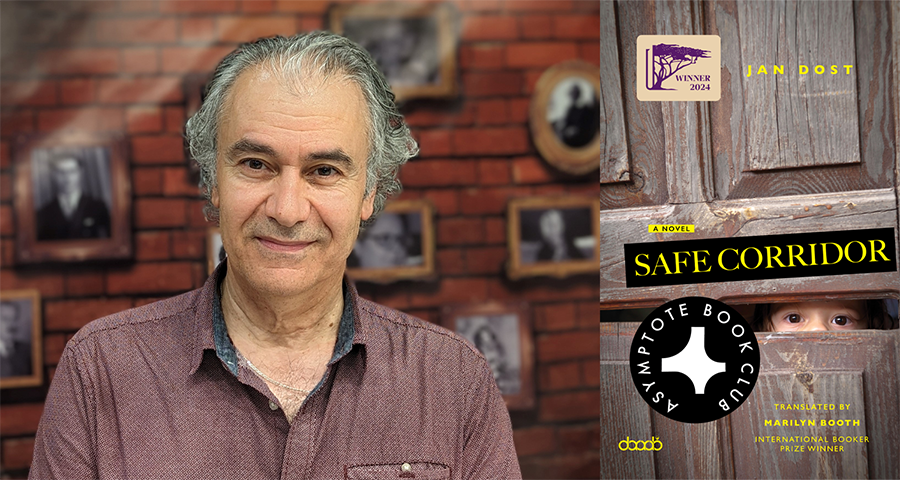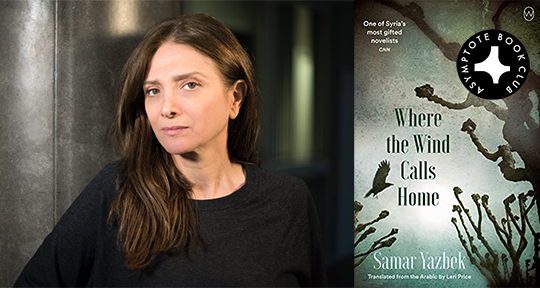“Children,” Jan Dost tells us, “grow up quickly in wars.” In his bold and unflinching Safe Corridor, the author demonstrates this brutal reality through the eyes of a young narrator caught within Syria’s civil conflict, resulting in a phantasmagorical, gripping account that not only captures the violent facts, but also the mind’s attempts to accept them. As Dost moves seamlessly between the surreal, the absurd, the tragic, and the enraging, the novel engages with the true consequences and aftermaths of loss: who—or what—one becomes after surviving the unthinkable.
The Asymptote Book Club aspires to bring the best in translated fiction every month to readers around the world. You can sign up to receive next month’s selection on our website for as little as USD20 per book; once you’re a member, join our Facebook group for exclusive book club discussions and receive invitations to our members-only Zoom interviews with the author or the translator of each title.
Safe Corridor by Jan Dost, translated from the Arabic by Marilyn Booth, DarArab, 2025
“On the evening when young Kamiran began to realise that he was turning into a lump of chalk, rain was bucketing down.” With this devastatingly surreal image, Jan Dost’s Safe Corridor—gracefully translated by Marilyn Booth—immerses its readers in a scene that brings to mind Kafka’s The Metamorphosis. A Syrian-Kurdish writer-translator based in Germany, Dost is one of Syria’s most important living authors with sixteen novels to his name, most of which center the realities and consequences of his home nation’s civil war. Safe Corridor, originally published in Arabic in 2019 as Mamar Āmin, entrusts this testimony of a devastated country to a voice least equipped—and yet most fated—to bear it. Told through a fragile, furious, and often surreal narration, the novel captures how war is not only fought on battlefields but also inscribed upon the bodies and imaginations of children. As the acclaimed Palestinian poet Mahmoud Darwish puts it in his poem “The War Will End”:
I don’t know who sold our homeland
But I saw who paid the price.
Roland Gary, in his introduction to Kafka: A Collection of Critical Essays, states that the Czech writer’s work “belongs unmistakably to the twentieth century . . . because his sense of man’s fate is deeply bound up with the atrocities and nightmares of the age.” Similar atrocities have persisted into our own century, ensuring that Kafka’s worlds remain an enduring source of inspiration for many writers worldwide—especially Arab novelists. They are the worlds of the absurd, marked by estrangement and fear, wherein one is perpetually hounded by unseen forces they cannot name, condemned to live within utter futility. READ MORE…



